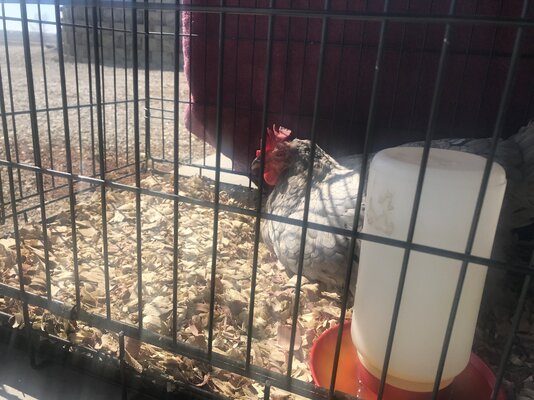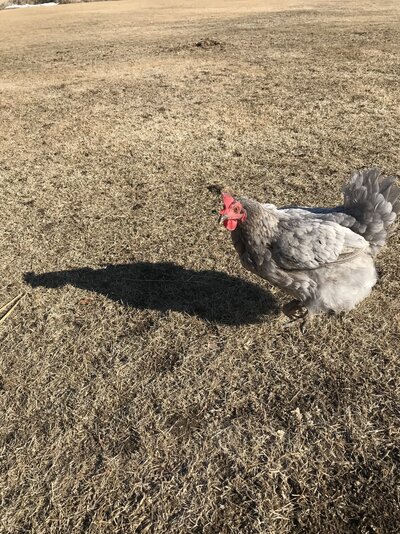IowaClucker
Chirping
Hi. I have a 3 year old sapphire gem that has had watery, white diarrhea with green solid droppings for 11 days. I took her to the vet on day 4 into her illness and she was negative for coccidiosis, worms and avian flu. They told me to worm her with Panacur paste for 5 days, give electrolytes, Tylan 50 and rest. I stopped the Tylan two days ago per my vet. Well, her diarrhea has improved, it’s not as watery and explosive but she is still tired.
My vet is stumped and I am too. X-rays we’re negative for egg binding and negative for not completely formed
 egg. She is calling around to other vets at Iowa State and Nebraska to help me. She told me to start medicated feed tonight and Corid even though she is negative for coccidiosis.
egg. She is calling around to other vets at Iowa State and Nebraska to help me. She told me to start medicated feed tonight and Corid even though she is negative for coccidiosis.
Any advice as to what we’re dealing with?
My vet is stumped and I am too. X-rays we’re negative for egg binding and negative for not completely formed
Any advice as to what we’re dealing with?





